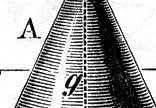Once you acknowledge that consciousness, that is to say, subjective experience, does not belong in the physical world, then you are a dualist. There are still materialists who deny the existence of consciousness as a distinct phenomenon and regard human beings as no more than elaborate natural automata but their view is so eccentric that it need not detain us here. The crucial distinction now is as between weak dualists or 'epiphenomenalists' who regard consciousness as no more than the subjective reflection of what is going on in the brain and strong or radical dualists who regard it as a function of mind and as a having a controlling influence on what goes on in the brain. As with most longstanding philosophical controversies, it is not easy to see how this argument can ever be resolved. Nevertheless, weak dualists may appeal to the notable progress in brain science following such technological innovations as brain scans etc. Once we know enough about how the brain works, they say, there will be no further need to invoke such intangible entities as mind or consciousness. Strong dualists, for their part, ask why consciousness ever entered the evolutionary process in the first place if it did not contribute to survival? Why could we not just as well have evolved as insentient automata ? (In that case the present controversy over consciousness would still be debated overtly but, of course, no one would ever be aware of what was being said or written!) An attempt to give empirical support to the strong dualist position comes from parapsychology. Since there are, as yet, no accepted physical explanations for such phenomena as telepathy, clairvoyance psychokinesis etc. ('psi phenomena' as the parapsychologists call them) weak dualists are compelled either to deny or disregard the reality of such phenomena or else try to save face by issuing promissory notes affrming that all such phenomena will be explained physically in the fullness of time.
|
